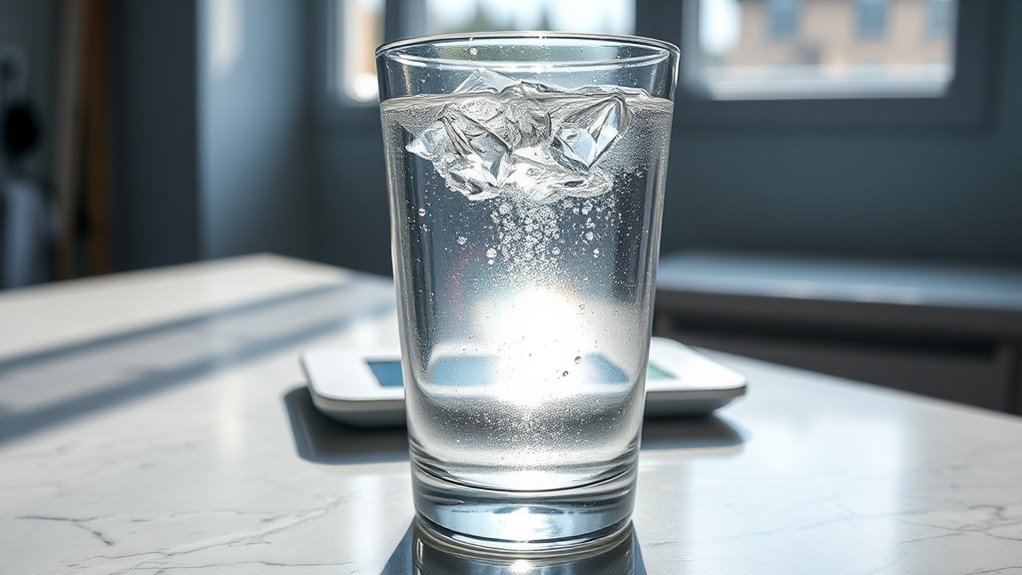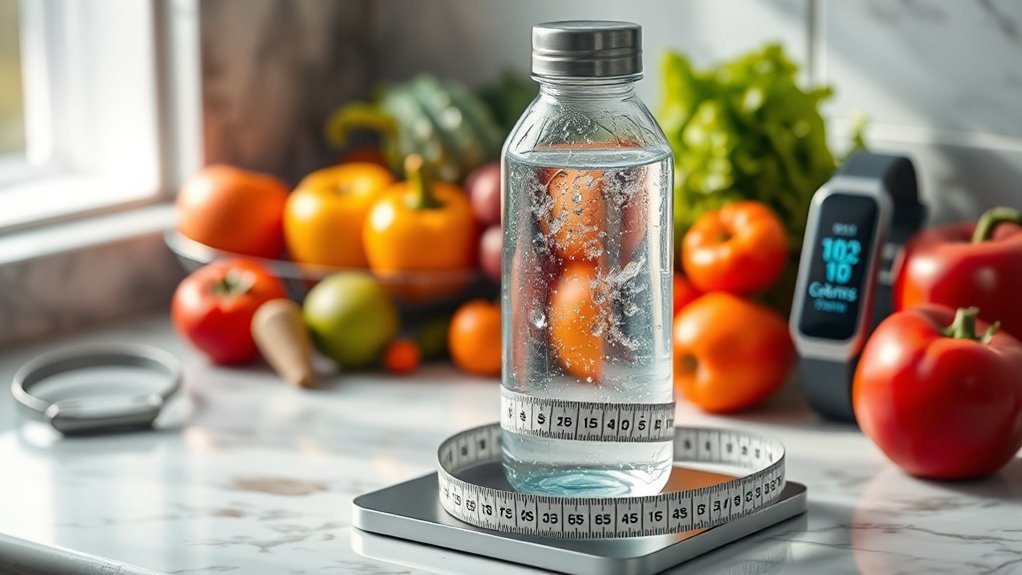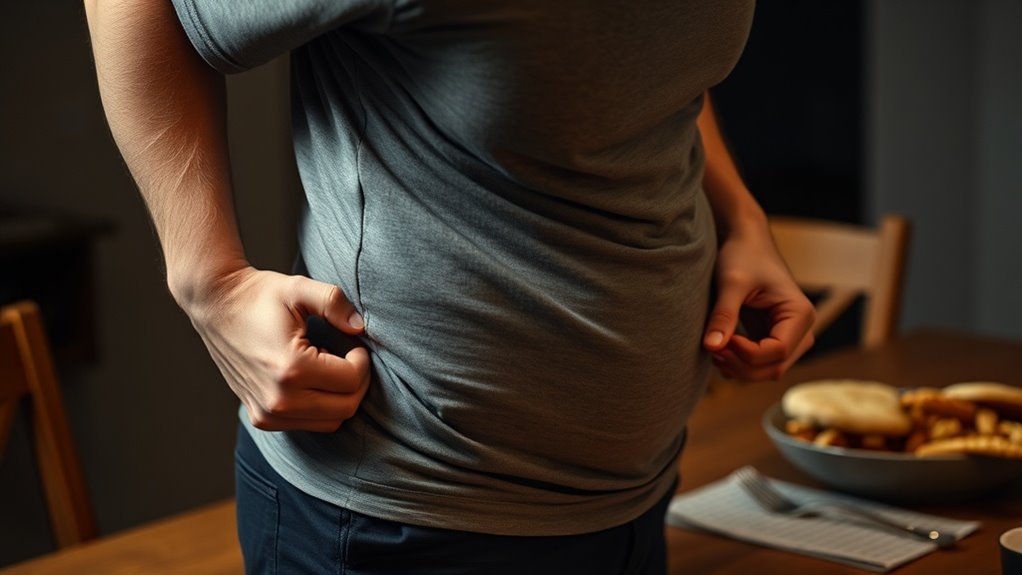The Science Behind Water and Weight Loss Results
You’ve likely heard that drinking more water helps with weight loss, but the scientific mechanisms behind this claim are fascinating. Research shows that water doesn’t just fill your stomach—it actively participates in your body’s metabolic processes. From increasing your resting energy expenditure to enhancing fat oxidation, water’s role in weight management extends far beyond basic hydration. Understanding these biological processes can transform how you approach your weight loss goals.
How Water Affects Your Metabolic Rate
When you drink cold water, your body expends additional energy to warm it to body temperature, temporarily increasing your metabolic rate by 24-30% for about an hour. Science shows that water also plays an important role in lipolysis, the breakdown of fat cells. Your body can’t effectively metabolize stored fat and carbohydrates without adequate hydration, making water essential for peak metabolic function. Proper hydration also supports efficient food conversion into energy, enhancing weight loss efforts even further.
The Connection Between Hydration and Appetite Control
Beyond its metabolic effects, water directly influences your eating habits and hunger signals.
Your hydration status plays a significant role in appetite regulation through multiple physiological pathways.
-
Drinking water before meals reduces caloric intake by 13% due to increased gastric distention.
-
Proper hydration helps prevent thirst signals from being misinterpreted as hunger cues.
-
Water consumption stimulates production of satiety hormones like cholecystokinin (CCK).
Additionally, maintaining proper hydration can boost metabolism and enhance overall calorie-burning efficiency, supporting your weight loss efforts.
Water’s Role in Fat Burning Processes
Although the human body requires multiple nutrients for fat metabolism, water stands as an essential component in the biochemical processes of lipolysis.
Your body uses water to metabolize stored fat into usable energy through a process called hydrolysis.
Without adequate hydration, your liver must work harder to support your kidneys, reducing its efficiency in converting stored fat to energy. Additionally, maintaining proper hydration levels can boost metabolism, further enhancing the fat-burning process.
Optimal Water Intake Strategies for Weight Management
Since ideal hydration levels vary among individuals, developing a personalized water intake strategy is essential for effective weight management.
You’ll need to adjust your intake based on activity level, climate, and metabolic factors.
- Drink 30-35mL per kg of body weight daily
- Consume 500mL before meals to enhance satiety
- Monitor urine color (pale yellow indicates peak hydration)
Additionally, increased water intake has been shown to lead to feeling fuller, which can help prevent overeating.





